Bachelor commerce human resource management degree
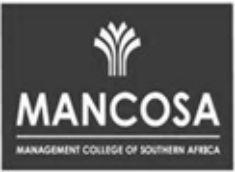
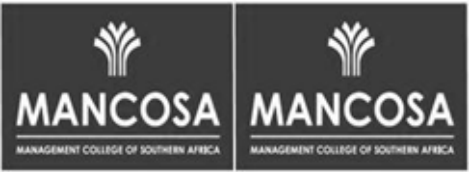
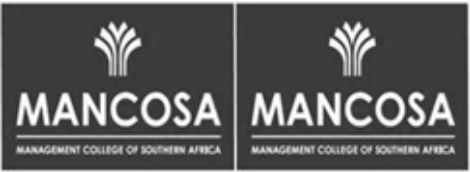
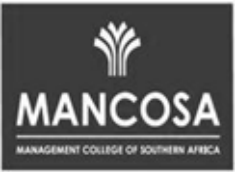
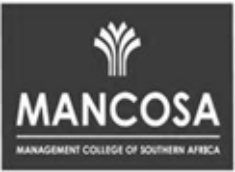
____________________________________________________________________
GENERAL DEGREE
____________________________________________________________________
THE MANAGEMENT COLLEGE OF SOUTHERN AFRICA
All rights reserved, no part of this book may be reproduced in any form or by any means, including photocopying machines, without the written permission of the publisher
| MANCOSA: MBA (GENERAL) STAGE 1 | 1 |
|---|
6.2.1 FEE PAYMENT 15 – 17
6.2.2 PAYMENT OF FEES AND OTHER DUES 18
6.2.7 MISCELLANEOUS COSTS 19
6.2.8 PAYMENTS 19
| 6.3.1 | 20 | |
|---|---|---|
| 6.3.2 |
|
20 |
6.4STUDENT SUPPORT
6.5.2 MODULE CO-ORDINATION AND EMAIL SUPPORT 23
6.5.3 LIBRARY SERVICES 23
1
PROGRAMME HANDBOOK: JULY 2016 INTAKE
| MANCOSA: MBA (GENERAL) STAGE 1 | 2 |
|---|
8.1.1 RULES REGARDING THE SUBMISSION OF ASSIGNMENTS 34 – 47
8.2ASSIGNMENT AND PROJECT SUBMISSION DATES 48
| - | 49 – 51 | |||
|---|---|---|---|---|
| - | 52 – 53 | |||
| - |
|
54 – 55 | ||
| - |
|
56 – 59 | ||
| - | 60 – 61 | |||
| - | 62 – 64 | |||
| 10. | - | 65 – 66 | ||
| - |
|
67 – 72 | ||
|
||||
| 73 | ||||
| 74 | ||||
2
PROGRAMME HANDBOOK: JULY 2016 INTAKE
| 1. WELCOME |
|---|
| PROF YUSUF KARODIA |
|---|
MANCOSA programmes promote a high level of independence through innovative learning and assessment interventions. You can expect a carefully integrated mix of lectures; access to well designed self study materials and online learning resources. One key feature of MANCOSA is its use of case studies, an active learning model that teaches participants how to assess, analyse, and act upon complex business issues. Rooted in real-life experiences, the business case method develops analytical skills, sound judgement, and the leadership potential within each participant. This will equip you with cutting-edge skills that will position you to be a leader in your organisation and community.
For those who are prepared to embrace the challenges of this programme, you will find unique rewards with lasting impact for your organisation and career. We wish you well in your academic endeavours and assure you of our continued support towards realising your goals. I wish you well in your studies.
| 1.2 MESSAGE FROM THE OFFICE OF THE DEAN |
|---|
Welcome to the MANCOSA Master of Business Administration (MBA) degree programme. You are about to embark upon a challenging, new journey, discovering new horizons and breaking new frontiers of knowledge. For the duration of the programme you will be exposed to highly competent academics, who will not only share with you their knowledge of the current practices necessary for a global, dynamic and turbulent environment, but who will also guide you and mentor you to enable you to develop the desired graduate attributes (knowledge, skills, attitudes and qualities), including critical-thinking and life-long learning skills. You can expect to experience high quality, innovative, cutting-edge knowledge and scientific rigour in terms of research, teaching, learning and assessment. Enjoy your journey on this road that will lead you to a higher level of knowledge, skills and abilities.
| 2.1 BRIEF HISTORY OF MANCOSA |
|---|
The Management College of Southern Africa (MANCOSA) is a private higher education institute registered in terms of the Higher Education Act (Act 101 of 1997, as amended). It was established in 1995 as a post-apartheid empowerment institution offering affordable and accessible management education primarily to persons previously denied access to postgraduate education. MANCOSA has 100% black ownership, i.e. it is owned entirely by previously disadvantaged individuals in the South African context. The Master of Business Administration (MBA) degree programme has been offered since 1995. Between 1995 and 2000 MANCOSA provided management programmes in association with the Buckinghamshire Chilterns University College (BCUC), a College of the University of Brunel in the United Kingdom. During this period MANCOSA was successfully quality assured by the British Quality Assurance Agency (QAA). In 2002 MANCOSA received full institutional accreditation from the Higher Education Quality Committee (HEQC), the quality assuring committee of the Council on Higher Education (CHE).
| 2.2 PROGRAMME OFFERINGS |
|---|
MANCOSA offers the following accredited and registered programmes: 1. Higher Certificate in Business Management
2. Higher Certificate in Local Government and Development Management 3. Higher Certificate in Accounting
4. Higher Certificate in Supply Chain Management
5. Higher Certificate in Information Technology
6. Higher Certificate in Public Management
7. Higher Certificate in Human Resource Management
8. Higher Certificate in Project Management
9. Higher Certificate in Marketing
10. Advanced Certificate in Management Studies
11. Advanced Certificate in Financial Planning
12. Bachelor of Business Administration degree
13. Bachelor of Public Administration degree
14. Bachelor of Commerce in Human Resource Management degree
15. Bachelor of Commerce in Marketing Management degree
16. Bachelor of Commerce in Information and Technology Management degree 17. Bachelor of Commerce Supply Chain Management degree
18. Bachelor of Commerce in Financial Management degree
19. Bachelor of Commerce in Entrepreneurship
20. Bachelor of Commerce in Retail Management
21. Bachelor of Business Administration Honours
22. Bachelor of Commerce Honours in Human Resource Management
23. Bachelor of Commerce Honours in Marketing Management
24. Bachelor of Public Administration Honours
25. Postgraduate Diploma in Educational Management
26. Postgraduate Diploma in Business Management
27. Postgraduate Diploma in Project Management
28. Master of Business Administration
29. Master of Public Administration
PROGRAMME HANDBOOK: JULY 2016 INTAKE
| MANCOSA: MBA (GENERAL) STAGE 1 | 6 |
|---|
MANCOSA’s vision is to be the leading distance higher education provider that is responsive to the evolving education and training needs of dynamic economies through a commitment to people, opportunity and quality.
| 4. THE MANCOSA MISSION |
|---|
4.Contribute to economic and social upliftment through responsive and relevant interventions. 5.Maintain service excellence.
6.Contribute to the transformation process of higher education.
| 5. MBA PROGRAMME STRUCTURE |
|---|
• Identify and solve problems in which responses display that responsible decisions using critical and creative
thinking have been made.
• Organise and mobilise the resources of the organisation to achieve strategic goals and targets.
• Develop a reflective mind-set that can create continuous learning and growth in self, the staff and the
• Demonstrate the ability to apply conceptual and analytical frameworks within different organisational
management conditions.
students are drawn. The main focus of the programme is to ensure that students develop the ability to apply
management theory in practice.
|
|
|
|---|---|---|
|
7
| 5.3 MODULE DESCRIPTIONS |
|---|
concepts in the business environment.
• Identify and critically discuss the various macro-environmental, industry and micro-environmental factors
and how companies can implement the SAVE model.
• Evaluate key competencies of an effective marketing manager.
• Evaluate the key factors impacting marketing management within emerging markets.
• Critically discuss the role and components of a modern marketing information system (MIS).
• Critically discuss and apply the marketing research process.
• Analyse how multi-national companies may benefit from the marketing of goods to people at the ‘bottom
evaluate how these systems influence strategic and organisational decision making.
• Describe the components and characteristics of an information system and establish how this impacts on
PROGRAMME HANDBOOK: JULY 2016 INTAKE
| MANCOSA: MBA (GENERAL) STAGE 1 | 9 |
|---|
| • | |
| • | |
|
|
| • |
|
| • | |
| • | |
|
|
| • |
|
| • | |
| • | |
|
|
| • |
|
| • | |
| • | |
|
|
| • |
|
| • | |
demonstrate the need for and importance of competitive and comparative strategies with regards to
9
PROGRAMME HANDBOOK: JULY 2016 INTAKE
| MANCOSA: MBA (GENERAL) STAGE 1 | 10 |
|---|
| • • |
|---|
investments.
• Recognise the variety of sources of finance that exist, and appreciate the implications of this for a
• Appreciate the problems of exchange-rate fluctuations and the avoidance of exchange rate risk and other
factors related to risk.
• Research and resolve business problems in the workplace.
• Critically apply simple statistical tools and analyses to solve business-related problems.
• Critically apply quantitative methods to analyse business data for production, planning, forecasting and
other organisational decision-making purposes.
appropriate.
• Understand the different research design methodologies, and their respective suitability to study
| • • |
|---|
Upon completion of this module, the student should be able to:
organisation.
• Explain how effective operations strategies are developed and implemented.
| MANCOSA: MBA (GENERAL) STAGE 1 | 11 |
|---|
a project environment.
| • • |
|---|
• Apply leadership communication and risk management tools and techniques in a project management
environment.
Upon successful completion of this module, the student should be able to:
• Apply the key steps required in exploiting an innovative idea or opportunity to develop an existing
business, launch a new venture, or initiate a social enterprise.
• Critically analyse prospective venture capital investments.
• Apply creativity techniques at the individual and organisational level to identify and capitalize on
11
PROGRAMME HANDBOOK: JULY 2016 INTAKE
| MANCOSA: MBA (GENERAL) STAGE 1 | 12 |
|---|
the healthcare industry when analysing complex factual situations.
• Effectively integrate (or synthesise) important facts, concepts, principles and theories in the field of
• Apply epidemiological approaches to the study of patterns of the burden of disease and injury in
populations.
• Assess public and global health issues and possible remedies/interventions that transcend national
borders, class, race, ethnicity and culture.
• Reflect on personal leadership practices and cultural perspectives and recognise their impact and
influence on organisational effectiveness.
interrelationships of leadership, human capital, vision, organisational culture, and privilege.
• Lead skilled facilitation of the change process including means of initiation, implementation, sustainability,
change process in the organisation.
12
optimisation, effectiveness and efficiency.
• Attain the ability and skill to undertake high-level decision making within a strategic supply chain
and improve organisational profitability.
• Critique the various retail management strategies and understand the application thereof, while providing
|
|---|
Upon completion of this module, the student should be able to:
• Demonstrate an understanding of the inextricable relationship between environment and economy for
use in an organisational strategic context.
• Understand the OD process in the context of the basic roles and styles of the OD practitioner in
overcoming resistance to change.
• Understand and use leading strategies to develop success in organisations by focusing on system-wide OD
approaches, organisation transformation and strategic change, anticipating future challenges and
|
|
|
|
|
|
|
|
|
|
|
|
|
|
14 PROGRAMME HANDBOOK: JULY 2016 INTAKE
| 6. PROGRAMME ADMINISTRATION |
|---|
| 6.2 FINANCE |
|---|
6.2.1 Fee Payment
• Where a student has sponsorship in respect of financial support from an employer or any other sponsoring body in respect of fees, the student must supply proof of sponsorship at enrolment.• The student, however, is ultimately responsible for all and any payment owing to MANCOSA in the case of default by the sponsor.
Screen 1:
CLICK HERE
Screen 2
PROGRAMME HANDBOOK: JULY 2016 INTAKE
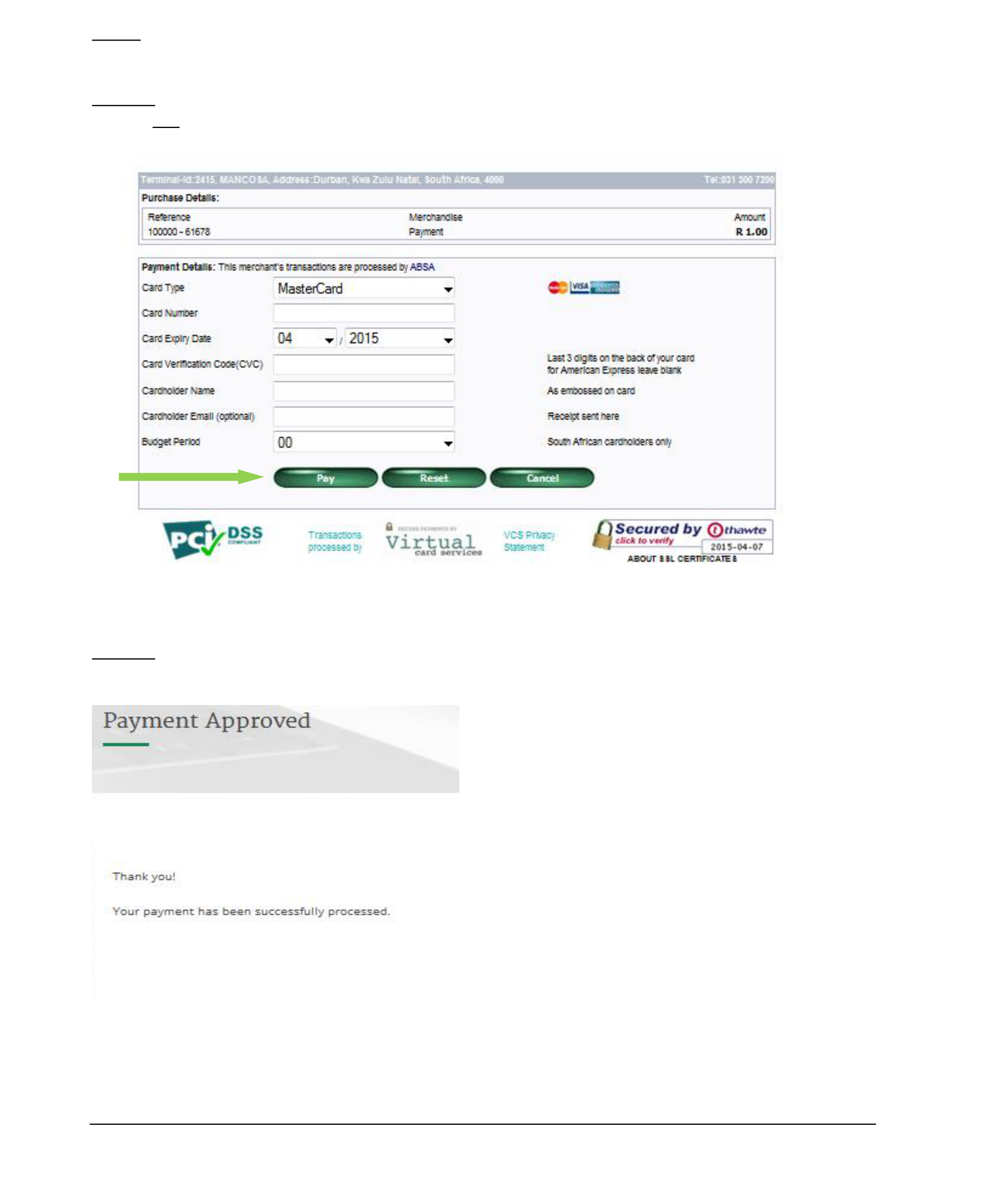
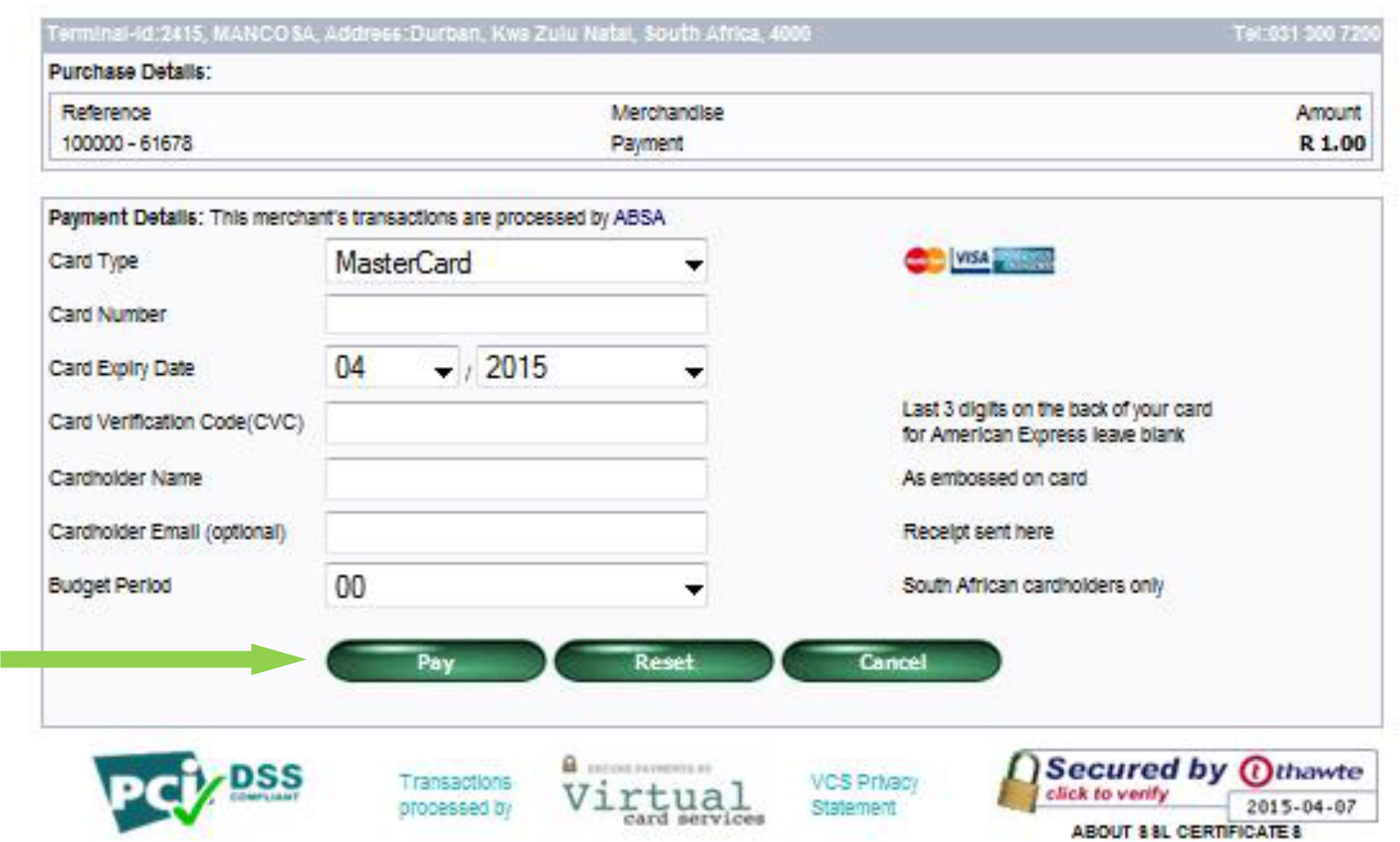
| MANCOSA: MBA (GENERAL) STAGE 1 | 17 |
|---|
PROGRAMME HANDBOOK: JULY 2016 INTAKE
6.2.2 Payment of Fees and Other Dues
• withhold the release of certificates,
• not allow a student to register or re-register on any MANCOSA programme
plan 3 option and have their accounts adjusted accordingly, thereby increasing their debt to MANCOSA.
• A charge of R 1000.00 will be levied against all plan 3 payment options, if not settled in full by the due date.
Aegrotat examination : R 250.00 per module
Graduating in absentia : R 300.00
Transcript reprint : R 200.00 per copy
Certificate reprint : R 200.00
Certificate re-issue : R 250.00
Student card re-issue : R 100.00
Change of elective : R 600.00
Replacement of lost modules : Emailfor cost per module Deferral fee : R 2 500.00
Student refund process : will in some instances attract an administration fee Viewing of marked examination script : R250 per module• A charge of R100.00 will be levied to cover administrative and bank charges in respect of: returned cheques and/or
unpaid debit orders
PROGRAMME HANDBOOK: JULY 2016 INTAKE





